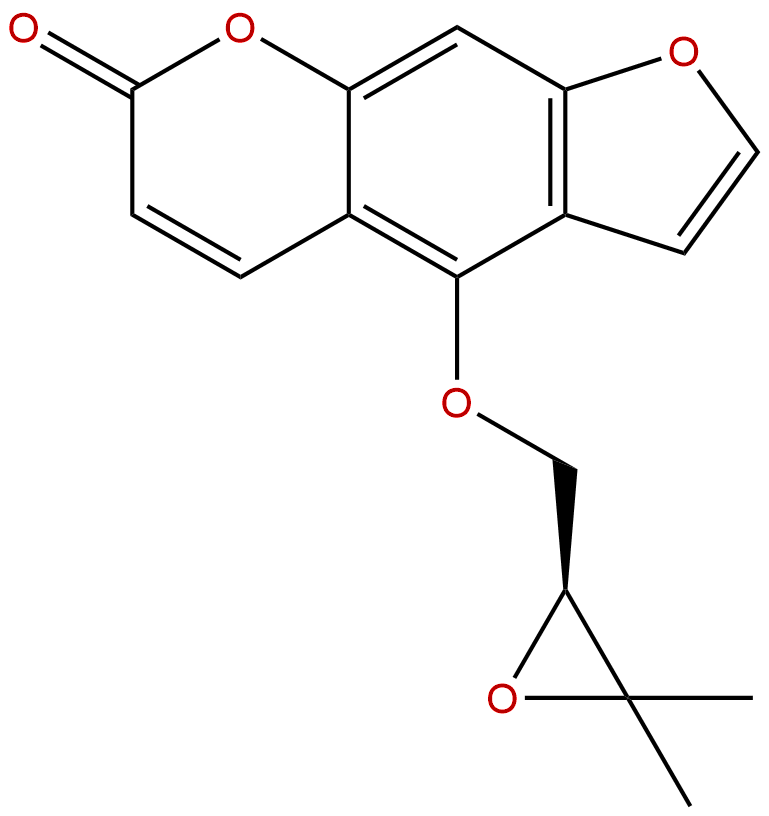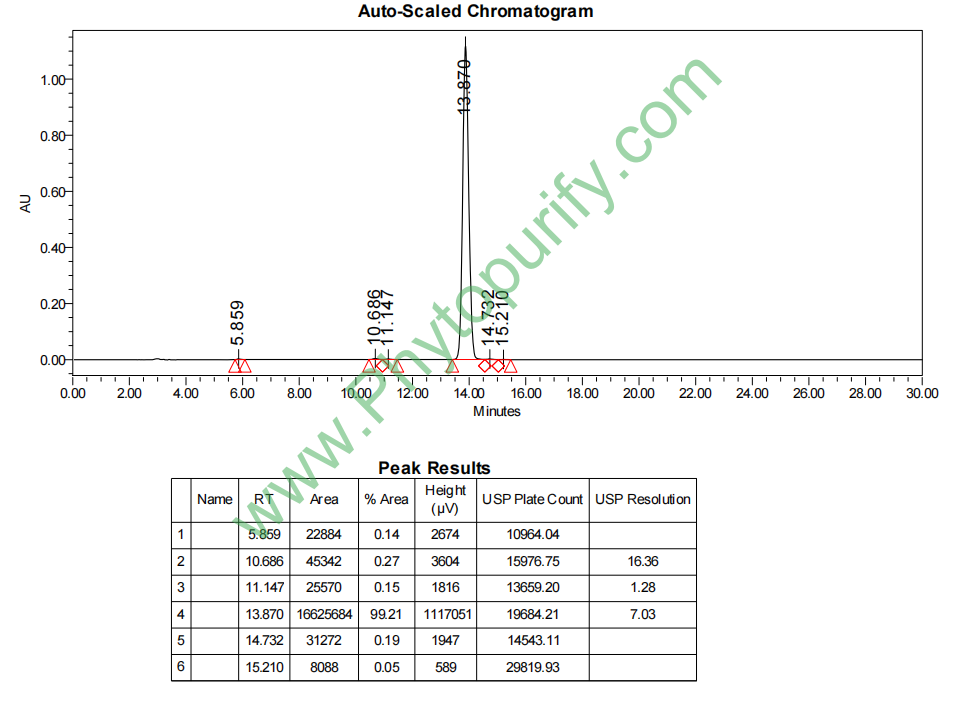
OxypeucedaninCAS No.:737-52-0
|
||||||||||
 |
|
|
||||||||

| Catalogue No.: | BP3302 |
| Formula: | C16H14O5 |
| Mol Weight: | 286.283 |
Product name: Oxypeucedanin
Synonym name:
Catalogue No.: BP3302
Cas No.: 737-52-0
Formula: C16H14O5
Mol Weight: 286.283
Botanical Source:
Physical Description:
Type of Compound: Coumarins
Purity: 95%~99%
Analysis Method: HPLC-DAD or/and HPLC-ELSD
Identification Method: Mass, NMR
Packing: Brown vial or HDPE plastic bottle
Storage: Store in a well closed container, protected from air and light. Put into refrigerate or freeze for long term storage.
Whenever possible, you should prepare and use solutions on the same day. However, if you need to make up stock solutions in advance, we recommend that you store the solution as aliquots in tightly sealed vials at -20℃. Generally, these will be useable for up to two weeks.
The product could be supplied from milligrams to grams, up to kilograms
Inquire for bulk scale.
Descriptions:
Oxypeucedanin is a major coumarin aglycone that can be extracted from Ostericum koreanum, coumarin aglycones have demonstrated various pharmacological effects, including anti-proliferation, anti-inflammation, and anti-pain; based on transcriptional alteration and complicated modulation of MAPK signaling, might be underlying mechanisms responsible for the various pharmacological effects of oxypeucedanin.[1]
Oxypeucedanina has a novel anticancer effect, mediated via induction of G2-M cell cycle arrest and apoptosis in human prostate carcinoma DU145 cells.[2]
Oxypeucedanin is a kind of open-channel blocker of the hKv1.5 channel and it prolongs the APD, therefore, it is an excellent candidate as an antiarrhythmic drug for atrial fibrillation.[3]
Oxypeucedanin and osthole have protective effects on doxorubicin -induced apoptosis in PC12 cells.[4]
Oxypeucedanin has hypotensive effects , the effect is related to dilate blood vessels.[5]
Oxypeucedanin has antidiarrheal and anti-inflammatory effects .[6]
References:
[1] Choi J S, Shin H Y, Kwon K S, et al. Planta Med, 2011, 77(13):1512-8.
[2] Kang T J, Lee S Y, Singh R P, et al. Acta Oncologica, 2009, 48(6):895-900.
[3] Eun J S, Park J A, Choi B H, et al. Biol Pharm Bull, 2005, 28(4):657-60.
[4] Moieniarya M, Shookohinia Y, Hosseinzadeh L, et al. Res Pharm Sci, 2012, 7(5).
[5] Tang C. Chinese Journal of Modern Applied Pharmacy, 1994(01):14-16.
[6] Zhang M, Shen Y. Chinese Traditional & Herbal Drugs, 1996(12):727-9.
[7] Paramapojn S, Gritsanapan W, Ganzera M, et al. Planta Med, 2008, 74(9):1089.
HPLC of Oxypeucedanin
